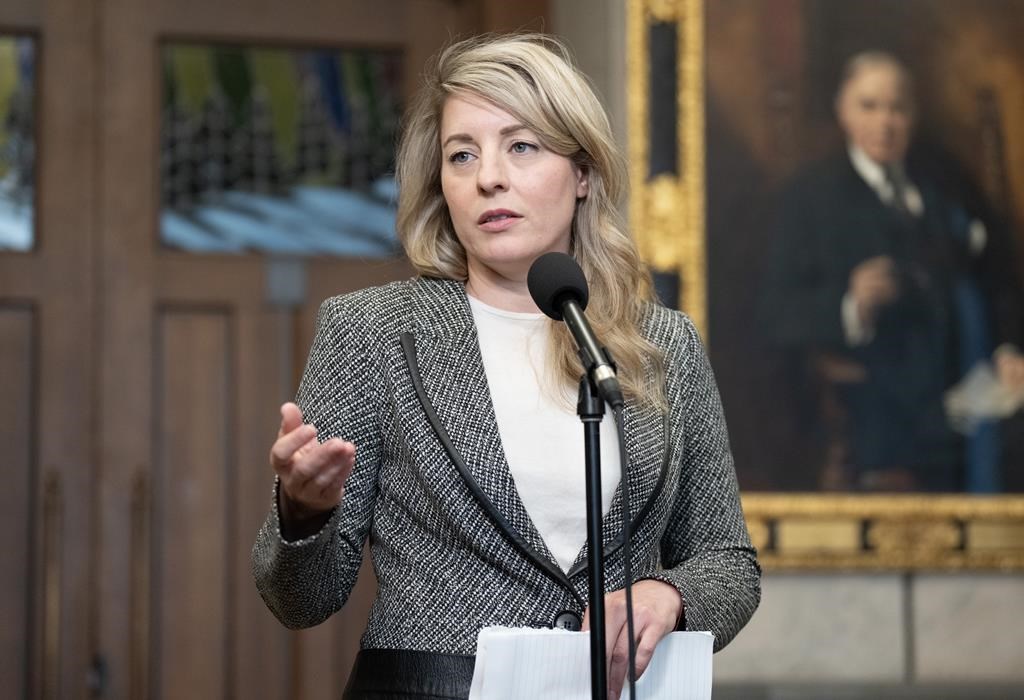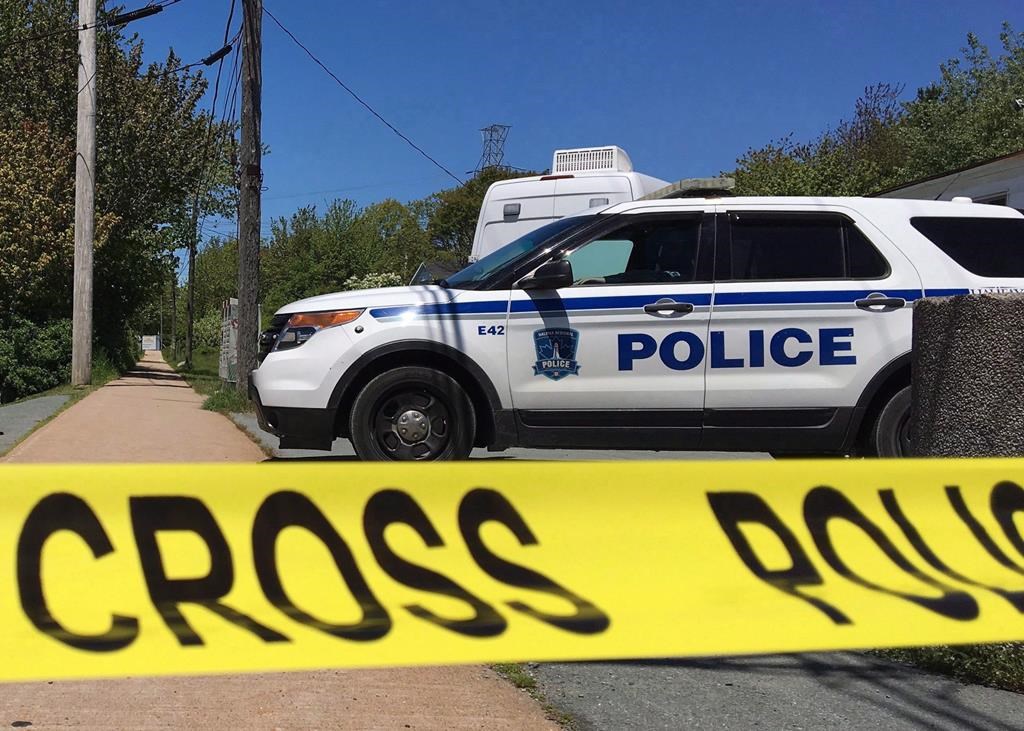The Latest: James Holmes says he was driven to kill by depression, not anger
Posted May 29, 2015 01:39:15 PM.
Last Updated May 29, 2015 11:20:06 PM.
This article is more than 5 years old.
5 p.m. (MDT)
Jurors in the Colorado theatre shooting have been sent home for the weekend after spending most of Friday listening to a videotaped interview of James Holmes by a state-appointed psychiatrist.
District Attorney George Brauchler had interspersed about five hours of the recording with questioning of the psychiatrist, helping to frame what jurors heard. The psychiatrist, William Reid, told jurors he thought Holmes was struggling to protect himself from tumultuous emotions during the 22 hours of interviews, all of which jurors are expected to see, not trying to hide anything from prosecutors.
___
4:30 p.m. (MDT)
James Holmes says he was driven to plot a mass killing out of depression.
In a videotape that jurors in the Colorado theatre shooting watched Friday, Holmes tells a state-appointed psychiatrist he transferred suicidal feelings to homicidal thoughts because he was catatonic with depression after breaking up with a girlfriend and dropping out of their social circle.
He denies he acted out of anger and says he had no desire to do anything except what he called the mission he set for himself.
He says he felt compelled to buy more and more weapons in the months before the attack at the movie theatre.
Holmes has pleaded not guilty by reason of insanity in the July 20, 2012, Aurora theatre attack that killed 12 people and injured 70.
Prosecutors are trying to prove he knew right from wrong at the time of the attack.
___
3:40 p.m. (MDT)
Colorado theatre shooter James Holmes says he was pushing away friends and a possible relationship two months before the attack because he was consumed with the idea of becoming a killer.
In a videotaped interview with a state-appointed psychiatrist played Friday in court, Holmes says he broke off a budding relationship because he didn’t want the woman to bear the stigma of being seen as the girlfriend of a murderer.
He says his plan to carry out a mass killing was emerging as his main focus — more important than friends or his studies.
Holmes has pleaded not guilty by reason of insanity in the July 20, 2012, Aurora theatre attack that killed 12 people and injured 70.
Prosecutors are trying to prove he knew right from wrong at the time of the attack.
___
2 p.m. (MDT)
James Holmes says he wondered if he was under FBI surveillance as he prepared to attack moviegoers and that he hoped agents would stop him.
In a videotaped interview with a state-appointed psychiatrist played Friday in court, Holmes says he worried about being followed and hoped he would be “locked away before I did it.”
Holmes told Dr. William Reid about his persistent violent thoughts, including a feeling that he should shoot as many people as possible.
Holmes has pleaded not guilty by reason of insanity. Prosecutors are trying to prove he knew right from wrong at the time of the attack.
They say a possible motive was anger and frustration over his struggles to work and communicate with other researchers a competitive neuroscience program.
___
12 p.m. (MDT)
James Holmes returned from a Christmas vacation months before opening fire in a suburban Denver theatre feeling sick and increasingly anxious and depressed.
In a video played for jurors, Holmes tells state-appointed psychiatrist William Reid that his mind was “falling apart,” he had been diagnosed with mononucleosis, and his first romantic relationship was ending. But he says he still passed all his classes.
In the segments played before a one-hour lunch break, Holmes also describes freezing up as violent images played in his head when he felt awkward in social situations. He says he never felt suicidal but did imagine killing others.
___
10:55 a.m. (MDT)
The man who opened fire in a Colorado theatre, killing 12, says he believes God might care about those killed.
James Holmes described God as “everything” in an interview with a state-appointed psychiatrist that was shown at Holmes’ death penalty trial on Friday. Holmes said that as “everything,” God would care about the shootings only because they changed something. Pressed further, he said, “He might care that people were dying.”
Jurors heard Holmes’ remarks in a video of his interview with Dr. William Reid.
Reid, a key prosecution witness, has testified that he determined that Holmes was sane at the time of the Aurora theatre shooting. Holmes has pleaded not guilty by reason of insanity.
___
10:30 a.m. (MDT)
Jurors in the Colorado theatre shooting trial are again watching James Holmes’ videotaped interview with a state-appointed psychiatrist, after a roughly 20-minute interruption caused by a technical glitch.
Dr. William Reid interviewed a medicated Holmes in 2014, about two years after the shooting.
The video shows Reid trying to draw out the defendant on his relationships with other people.
Holmes responds in short sentences with little elaboration. He talks about going to church with his family and visiting an orphanage in Mexico with a group from the University of California-Riverside when he was an undergraduate.
Holmes says faith was important to his mother, but that he was “never really a believer.”
He also describes his parents’ relationship as loving and says he felt loved.
___
9:30 a.m. (MDT)
A technical glitch has interrupted attempts to show jurors in the Colorado theatre shooting trial another segment of a video of defendant James Holmes being interviewed by a state-appointed psychiatrist.
After a few minutes of garbled sound and stop-and-start video Friday, Judge Carlos Samour called for a break with characteristic humour, saying he hoped non-lawyers could sort out the problem.
District Attorney George Brauchler opened Dr. William Reid’s second day of testimony by asking him about his laid-back interviewing style. The psychiatrist says it’s aimed at getting as much information as possible from his subjects without being limited by assumptions.
Reid also offered general impressions of Holmes, including that the defendant showed flashes of humour and wit.
Reid conducted nine interviews totalling 22 hours with Holmes. He concluded Holmes was mentally ill but legally sane at the time of the attack.
Holmes has pleaded not guilty by reason of insanity.










